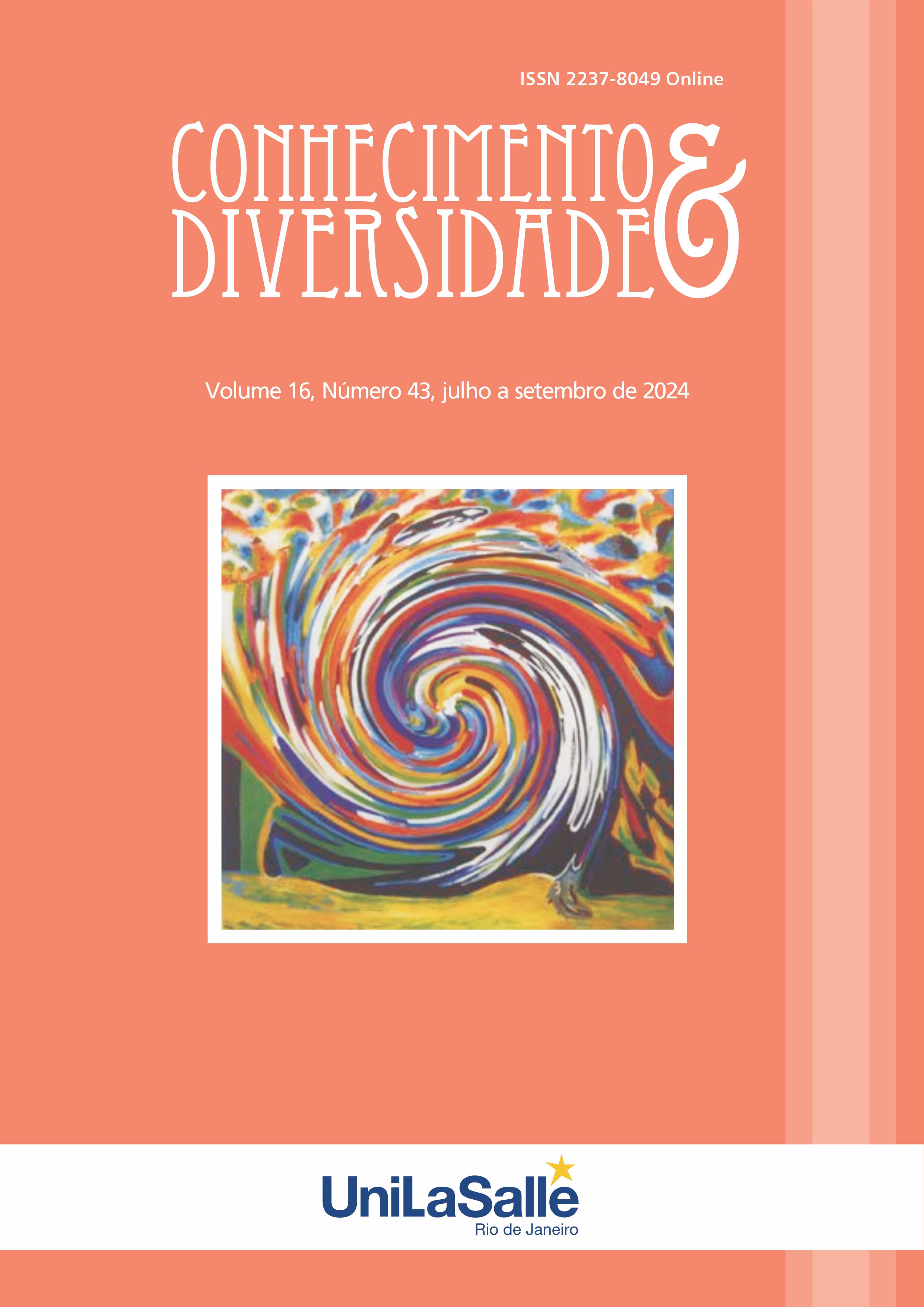PROFESSIONAL BURNOUT AMONG ENGLISH LANGUAGE FEMALE TEACHERS IN UKRAINIAN GENERAL SECONDARY SCHOOLS
DO WAR TIME MATTER?
DOI:
https://doi.org/10.18316/rcd.v16i43.11781Palabras clave:
English language teachers, burnout, emotional exhaustion, depersonalization, reduced personal accomplishment, general secondary school, war timeResumen
This research represents a continuation of previous research focusing on the professional burnout experienced by general secondary English teachers in emergency situations. Through the implementation of the Maslach Burnout Inventory, empirical data were collected from a sample of 70 female English language teachers working in general secondary schools in Ukraine. The results revealed notable patterns in the components of professional burnout, including emotional exhaustion, depersonalization of personality, and reduction of professional achievements. Specifically, teachers’ significant proportion reported experiencing high to medium levels of emotional exhaustion, medium to low levels of depersonalization, and medium to low levels of reduction in professional achievements amidst the backdrop of war. Conversely, teachers’ minority reported low-level emotional exhaustion but high-level reduction in professional achievements and depersonalization. Statistical analysis indicated significant differences in emotional exhaustion (medium level), depersonalization of personality (high and low levels), and reduction of professional achievements (high level) between prewar and wartime contexts. However, no significant correlation was found between professional experience and professional burnout among female English language teachers. The implications of these empirical findings are discussed in relation to existing literature on the professional burnout experienced by English language teachers in general secondary schools, with emphasis placed on both theoretical considerations and practical implications.
Citas
Fesun, H., Nechytailo, T., Kanivets, T., Zhurat, Y., & Radchuk, V. (2020). The Correlation of Socio-Psichological Factors with “Burnout” Syndrome in Education. Revista Romaneasca Pentru Educatie Multidimensionala, 12(3), 294-311. https://doi.org/10.18662/rrem/12.3/322
Gedvilienė, G., & Didžiulienė, R. (2020). The Interaction between Teachers’ Professional Burnout and Professional Satisfaction. Pedagogika / Pedagogy, 137(1), 66–82. https://doi.org/10.15823/p.2020.137.4
Government of Ukraine. (2024). Law of Ukraine “On a Complete General Secondary Education”, No 31. Verkhovna Rada https://zakon.rada.gov.ua/laws/show/463-20#Text
Greenberg, J. S. (2002). Comprehensive Stress Management. 7th ed. Boston: McGraw-Hill.
Dogan, Nurdan Duhan, & Dogan, Nur Duha. (2023). School Burnout in Secondary and High School Students: a Systematic Review. Revista Conhecimento & Diversidade (RCD), 15(40), 159–193. https://doi.org/10.18316/rcd.v15i40.11309
Greenberg, M., Brown, J., & Abenavoli, R. (2016). Teacher Stress and Health. Social and Emotional Learning. RWJF Collect, 9, 1–12.
Harvey-Torres, R., Palmer, D., Degollado, D. & Estrada, K. (2022). Three worlds pitfall? A transfronteriza Latina bilingual teacher leveraging literacy to navigate, home, school, and university divides. Teaching and Teacher Education, 116. https://doi.org/10.1016/j.tate.2022.103767
Madigan, D. J., & Kim, L. E. (2021). Towards an Understanding of Teacher Attrition: A Meta-analysis of Burnout, Job Satisfaction, and Teachers’ Intentions to Quit. Teaching and Teacher Education, 105, 1-14. https://doi.org/10.1016/j.tate.2021.103425
Maslach, C., & Goldberg, J. (1998). Prevention of Burnout: New perspectives. Applied and Preventive Psychology, 7, 63–74.
Maslach, C., Jackson, S., & Leiter, M. (1996). Maslach Burnout Inventory Manual. Palo Alto (CA): Consulting Psychologist Press.
Maslach, C., & Schaufeli, W. B. (1993). Historical and Conceptual Development of Burnout. Professional Burnout: Resent Developments in Theory and Research / Eds. W. B. Schaufeli, C. Maslach, and T. Marck. Washington: Taylor & Francis.
Ponomarenko, T. I., Spivak, L. M., & Khomchuk, O. P. (2024). Professional Burnout of General Secondary Education Institution Teachers: Gender Aspect. Habitus, 57, 180-184. https://doi.org/10.32782/2663-5208
Padmanabhanunni, A, & Pretorius, T. B. (2023). Teacher Burnout in the Time of COVID-19: Antecedents and Psychological Consequences. International Journal of Environmental Research and Public Health; 20(5). https://doi.org/10.3390/ijerph20054204
Rasheed-Karim, W. (2020). The Effect of Stressful Factors, Locus of Control and Age on Emotional Labour and Burnout among Further and Adult Education Teachers in the U.K. International Journal of Emerging Technologies in Learning (IJET), 15(24), 26–37. https://doi.org/10.3991/ijet.v15i24.19305
Rathert, S., & Ağçam, R. (2023). Learning at Risk? Language Teaching Under Emergency Remote Conditions. Pedagogika / Pedagogy, 146(2), 39–59. https://doi.org/10.15823/p.2022.146.2
Romero, V., Núñez, J. C., Freire, C., & Ferradás, M. del M. (2023). Adaptive psychological functioning and burnout in teachers: Implications on instructional processes. Psychology, Society & Education, 15(1), 1–10. https://doi.org/10.21071/pse.v15i1.15345
Sadeghi, K., & Khezrlou, S. (2014). Burnout among English Language Teachers in Iran: Do Socio-demographic Characteristics Matter?, Procedia - Social and Behavioral Sciences, 98(4), 1590–1598. https://doi.org/10.1016/j.sbspro.2014.03
Descargas
Publicado
Número
Sección
Licencia
Derechos de autor 2024 Tetiana Ponomarenko, Liubov Spivak, Olena Khomchuk , Iryna Tsypnniatova

Esta obra está bajo una licencia internacional Creative Commons Atribución 4.0.
Tal como recomienda el Public Knowledge Project, RCD adopta para sus artículos una licencia CREATIVE COMMONS: Attribution CC BY 4.0
Esta licencia permite que otros distribuyan, remezclen, adapten y desarrollen su obra, incluso con fines comerciales, siempre que le atribuyan a usted el mérito de la creación original.
Esta es la licencia más adecuada que se ofrece.
Recomendado para la máxima difusión y utilización de los materiales bajo licencia.



